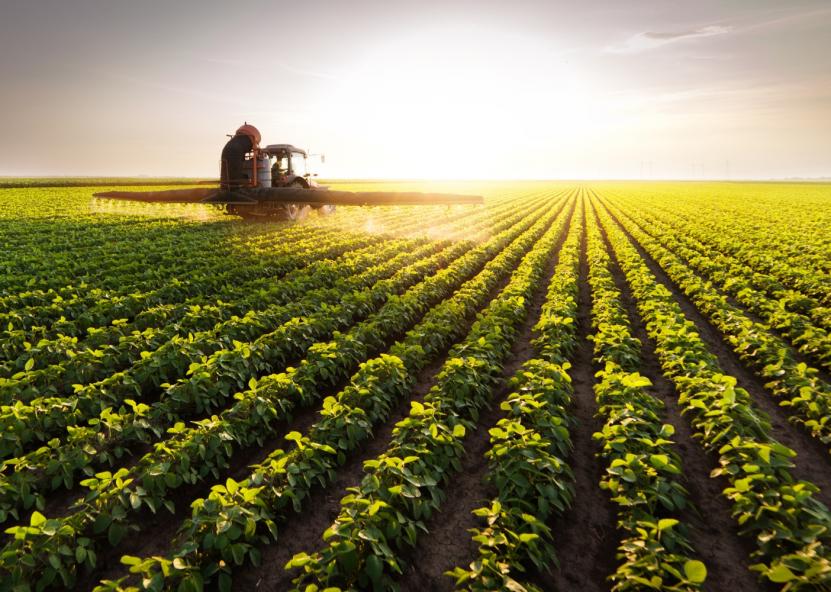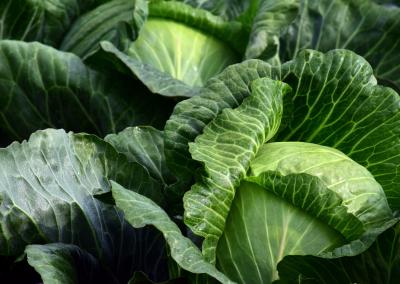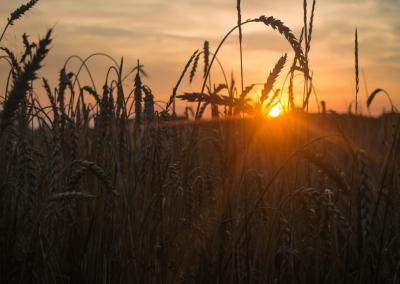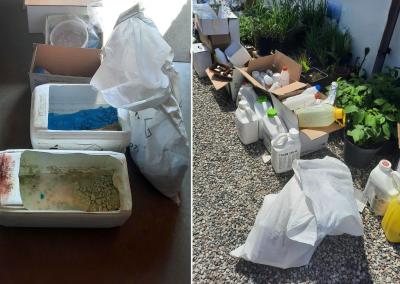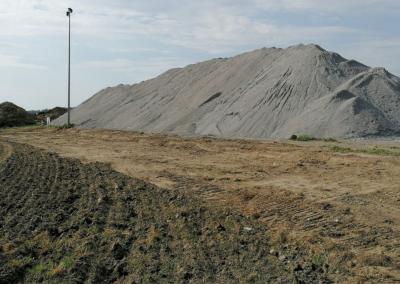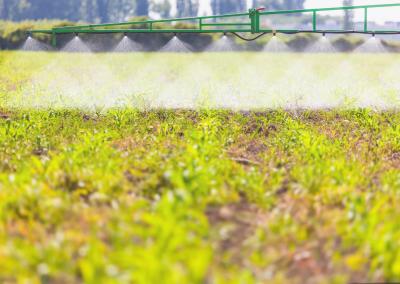5 myths about pesticides: what everyone needs to know
Pesticides or plant protection products (PPPs) – is a topic that often attracts a lot of attention and controversy. Farmers use science-based solutions and strictly controlled plant protection products to ensure a sufficient quantity of safe and quality food. Despite this, myths about the health effects of pesticides, the extent of their use and the safety of food still persist in the public mind.
„Plant protection products are often talked about superficially or through the prism of emotions, forgetting the facts. However, both the development and use of PPPs is a strictly regulated process based on science and a wealth of research. It is important to understand that pesticides are – one of the important tools that farmers use to protect their crops and to ensure that we have enough safe food on our tables, in compliance with strict requirements," says Zita Varanavičienė, Head of „CropLife Lietuva“.
Myth: food is contaminated with pesticidesThe European Food Safety Authority (EFSA) publishes an annual report on pesticide residues in food. The latest report notes that out of 133,000 samples tested, 96.3% met all requirements. The fact that farmers in EU countries are producing safe food is also confirmed by the results of the parallel studies of the EU's multiannual control plan – out of more than 13,000 samples, 98% were within the limit for pesticide residues in food. Lithuania's results are even better – 99.1% of the samples met the standards.
„Even samples with residues were not necessarily unsafe for consumption. Many people do not know that pesticide residues are subject to very strict standards: laboratory tests first establish a safe residue limit and then divide this figure by 100. The result becomes a standard that must be met, so the requirements are 100 times stricter than the safe level for humans," explains Z. Varanavičienė.
Myth: pesticide use on farms is a threat to our health
The use of pesticides is strictly regulated in the European Union. Only plant protection products that have been rigorously tested and found safe are allowed. The registration process for pesticides is extremely complex: it normally takes around 6-10 years from product development to approval. EU regulations ensure that pesticide residues in food stay within safe limits and that food is safe for consumers.
„The only thing to worry about is illegal pesticides sold on the black market, the use of which should be dealt with more rigorously by the authorities. Such pesticides are cheaper than legally distributed plant protection products, but their composition is untested and their impact on human health and the environment unpredictable. Sadly, in a survey conducted by „CropLife Lietuva“ two years ago, it emerged that every second Lithuanian citizen finds a justification for the use of illegal plant protection products in agriculture“, – notes Z. Varanavičienė.
Myth: farmers use too many pesticides
According to the Food and Agriculture Organisation of the United Nations (FAO), Lithuania's pesticide use is only 0.8–1.6 kg of active ingredient per hectare of crops – this is lower than the European average (about 2.3–2.5 kg/ha), lower than the world average (about 4.6 kg/ha) and significantly lower than the EU's highest PPP-using countries (8–10 kg/ha), which is why it is one of the EU's lowest users of pesticides.
„Lithuanian farmers use pesticides responsibly – only as much as is necessary for plant protection. In addition, pesticides are expensive, so excess pesticides are not economically viable and agronomically unjustified. Excessive use of pesticides is not good for farmers and has no scientifically based advantage for crop protection or yields," notes Z. Varanavičienė.Myth: We could do without pesticides completelyDiseases and pests constantly attack plants, weeds spread – this is inevitable on every farm. Without pesticides, it would be difficult to ensure the quantity and quality of food – yields would be threatened, prices would rise, and some food would be rendered unfit for consumption due to disease or pest damage. The responsible and targeted use of pesticides helps to protect crops, prevent losses and maintain a stable food supply for consumers.
According to the Ministry of Agriculture, if PPE is not used on time, yield losses can be as high as 30 percent, or even more than 50 percent in conditions favourable to pests or diseases. Some pests and diseases can pose a risk to humans and animals, which is why plant protection is a necessary and integral part of modern agriculture.
„Today's farmers are striving for sustainability, combining a variety of protection measures: crop rotation, more resistant plant varieties, biological solutions, and only using pesticides when it is unavoidable. This responsible approach allows us to protect yields and at the same time preserve the environment," notes Z. Varanavičienė.
Myth: plant protection products of natural origin – safer
There is a widespread belief that anything „natural“ is inherently safer, but this is not true. Both natural and synthetic plant protection products can have effects on the environment, humans or animals – it all depends on the properties of the active ingredient, the dosage and the method of application. What matters is not whether a product is "natural", but whether it is used in accordance with established standards and recommendations, because it is not the origin of the product that determines its toxicity.
„Like medicines, plant protection products help when used properly – after all, even a medicine becomes a poison if the dose is exceeded. That's why it's important to use only officially registered products and to strictly follow the prescribed conditions of use," says Z. Varanavičienė.



































































































